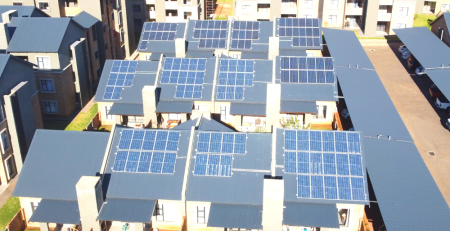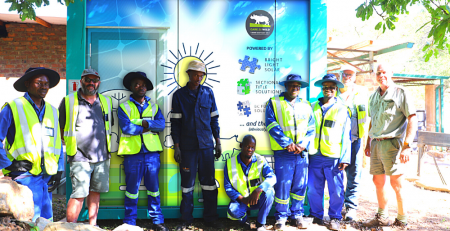7 easy energy- and money-saving tips for your home
May marks National Energy Month, which is aimed at promoting energy conservation. However, South Africans have little choice but to use electricity sparingly due to the ongoing electricity crisis in the country.
The average South African household uses around 900 kWh of electricity per month, and spends approximately R2 200 on electricity per month.
We know, saving electricity is probably the last thing any South African wants to think about. You want to make the most of the power you have while the lights are on. In fact, you may have noticed that electricity bills don’t necessarily go down during times of heavy load-shedding. Consumers may end up using more electricity during the times when the power is available, as they try to catch up on tasks that they were unable to complete during the power outages. With massive electricity tariff hikes of 18.65% effective since the 1st of April, conserving energy relieves the pressure from the national grid and your finances.
Additionally, conserving energy also cuts down greenhouse gas emissions, which are believed to be a major cause of global warming. As we become more aware of the impact of climate change on the environment, weather conditions and food production, reducing our carbon footprint becomes a top priority.
Fortunately, there are some easy ways in which consumers can reduce energy consumption in their homes. Here are 7 energy-saving tips to help lower energy usage and save money:
1. Energy-efficient light bulbs
LED light bulbs use up to 75% less energy than traditional incandescent bulbs and last up to 25 times longer. This means you’ll save money on your energy bills and reduce your carbon footprint at the same time.
2. Turn off the lights
The light bulb that saves the most energy is the light bulb that is not humming. Get into the habit of switching off lights that you are not using to save energy and money.
3. Upgrade to energy-efficient appliances
Cut energy and water use with energy-efficient appliances like those that are ENERGY STAR certified or A-rated on the South African Energy Efficiency Label. You can save up to 30% on your energy bills by upgrading to an energy-efficient refrigerator, washing machine, or dishwasher.
4. Unplug electronics when not in use
Many appliances like TVs, microwaves, chargers, monitors and computers continue to use electricity while on standby, which typically amounts to hours every day. To save energy and up to 10% of your energy bills, unplug electronics when not in use.
5. Use natural lighting
Take advantage of natural lighting by opening blinds and curtains during the day. This will reduce your need for artificial lighting and save energy.
6. Lower your geyser temperature
Geysers account for up to 40% of your electricity bill. Lowering your geyser temperature from 70°C to 60°C can save you up to 20% on your electricity bill. The water will still be hot enough to kill bacteria in the water, and comfortable enough for showers and washing dishes.
7. Have a braai!
If there are two things South Africans can do very well, it is to make the most of a difficult situation and have a braai. In fact, many of us have probably learned how to make a fire during the past few years of load-shedding. So, grab some wood, charcoal and matches, and spend some time outside with friends and family. Not only will this reduce your energy consumption and lower your electricity bill, but you also get to have some fun.
As you can see, saving energy does not need to be expensive or complicated. These simple tips can help relieve pressure of the national grid, save money on electricity bills and reduce your carbon footprint – as we like to say at STS, a WIN-WIN-WIN solution.
Click here to download these energy-saving tips for your home.






